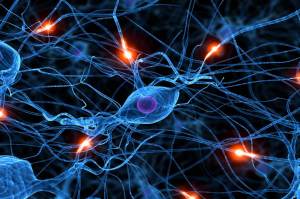 Since the development of scanners that can measure blood flow in the brain without seriously harming people, we have been learning a lot about how our brains work. Some journalists have called this the Golden Age of Neuroscience, although it’s more likely to turn out to be the Dawn of Neuroscience. We’re learning that the human brain is far more extraordinary than we ever thought – as far as we know, it is the most complex thing in the universe.
Since the development of scanners that can measure blood flow in the brain without seriously harming people, we have been learning a lot about how our brains work. Some journalists have called this the Golden Age of Neuroscience, although it’s more likely to turn out to be the Dawn of Neuroscience. We’re learning that the human brain is far more extraordinary than we ever thought – as far as we know, it is the most complex thing in the universe.
One of the things we have learnt is that the brain is in a constant process of change: everything we do, think and say subtly alters the network of neurones in the brain, a process described as neuroplasticity. Any given behaviour – let’s say being frightened by a dog – strengthens the connections of a particular sequence of neurones, creating what is called a neural-network. If we repeat the behaviour, then that particular neural network is reinforced – as neuroscientist Donald Hebb put it (back in 1949!) “what fires together, wires together“.
What this means is that every time you repeat a behaviour, you gradually wire up your brain in a way that makes that way of responding to events more likely, and ultimately so habitual that it takes great effort for you to choose another way of responding. So an incident of being frightened by a dog can be reinforced again and again, so that being frightened of dogs in general becomes a deeply ingrained habit.
Of course the early practitioners of Buddhism had no idea what was happening in the brain, but through seeing people’s behaviour and watching their own minds in very subtle detail in meditation, they were able to observe the way in which we gradually build, embed and reinforce our habits of relating to the world. They called this process karma.
Over time, of course, the meaning and interpretation of words drifts. Nowadays people tend to talk of karma as some kind of cosmic retribution system – it is even embedded in the Hindu caste system: if you are born in a lowly caste, then this is your karma for having been bad in your previous life – and some people have even applied this absurd reasoning to disabled people.
Sadly, some cruel and exploitative people are never punished; some kind and generous people live lives of great difficulty and distress. Your karma is your mind – your particular set of reactive habits to the world and your experiences: feeling threatened by people in authority, or the psychologically damaged person on public transport; getting angry (or collapsing) when people disagree with your opinions; whether you like or are frightened of dogs.
Karma was not, and is not, a description of a great cosmic process, but an incredibly sophisticated way for a pre-scientific society to make sense of the development of neural-networks in the brain. And the fantastic thing is, it’s never too late for you to create new neural-networks that are more helpful, more kind, more creative, and happier. John Lennon was wrong, Instant Karma isn’t necessarily gonna get you.

1 comment
Comments feed for this article
26/02/2015 at 10:33 pm
From Threat Focus To Solutions Focus | Ash's Blog
[…] neuroplasticity allows us to reprogram our brains so that instead of constantly looking out for failure, rejection […]